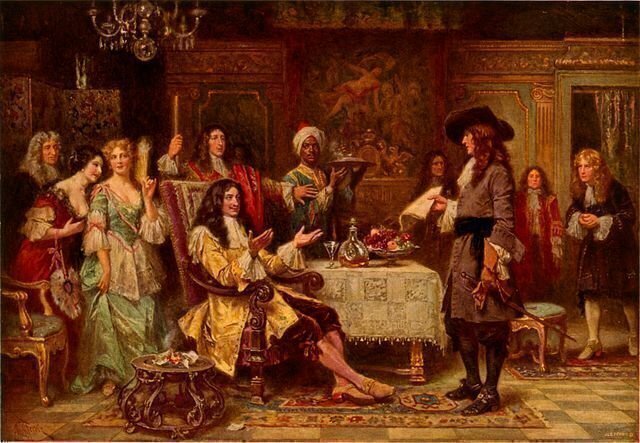
The author will participate in a program on religious liberty at the National Constitution Center on September 21. Learn more and get tickets. Other commentary comes from Robin Fretwell Wilson, Marci Hamilton and Kristina Arriaga.
The Religion Clauses of the Constitution emerged from a time of great religious ferment. That history casts light on today’s questions, but it rarely answers them.
The country was more than 99 percent Protestant, so religious fights were among Protestants. It was the established churches on one side—Congregationalists in New England and Episcopalians in the South—and the dissenting churches, mostly evangelical, on the other. The evangelicals successfully demanded that the established churches be disestablished, and they demanded both a Free Exercise Clause and an Establishment Clause in the federal Constitution. They got important help from a few elite reformers such as James Madison and Thomas Jefferson, but the evangelicals provided the political muscle.
1
The principal religious-liberty issue in the Founders’ time was government financial support for churches. The established churches depended on government money; the evangelicals wanted to end it. The final effort to save the religious establishment was an offer of tax support for all denominations on a nondiscriminatory basis. This “nonpreferential” establishment was rejected in the southern states where the proposal was most fully developed. A substantially different version, with similar motivations, was adopted in much of New England, and repealed early in the nineteenth century.
The principle that government does not pay for the religious functions of churches has remained uncontroversial from their time to ours. That much is settled. But today’s debates about government money and religious organizations present a different issue that dates only to the middle of the nineteenth century. Can government pay for secular services—education, social services, medical care—delivered by religious organizations, often in a religious environment?
That was not a live issue for the founding generation; governments rarely paid for such services in any form. But the federal government paid churches to run schools for American Indians. The practice aroused little controversy for a century; even Jefferson did it. Congress prohibited it after 1897.
One other principle emerges from the debate over funding the church. If a form of government aid to religion was constitutionally objectionable, making it nonpreferential did not save it. That position clearly won out in the founding debates, but it is not accepted by all sides today.
2
The second great religious-liberty issue in our time is government-sponsored prayers, religious observances, and religious displays. Government prayer was not controversial among Protestants in the late eighteenth century. Early presidents, with the partial exception of John Adams, were carefully interfaith in their use of religious rhetoric, avoiding references to Jesus. Maybe this reflected tolerance; maybe it reflected their own deist inclinations. Records are scarce, but congressional chaplains were apparently not so careful.
The founding generation believed that government should stay out of religious controversies. They said that government is not a competent judge of religious truth. So their practice may suggest that government-sponsored prayer was constitutional in their time; their principle suggests that it is unconstitutional in ours, when vastly greater religious pluralism has made these practices far more controversial.
Government-sponsored religion became intensely controversial with the great Catholic immigration in the nineteenth century. Disagreement over the King James Bible in the public schools led to Catholic children beaten and expelled, riots, churches burned to the ground, and dozens of people dead in the streets. Opposition to government funding for religious schools also dates from this period. It is a mistake to look only to the founding, and to disregard the lessons of experience in this nineteenth-century history.
3
The third and most fundamental religious-liberty issue is government regulation of religious practice. Should believers be exempt from regulation that requires them to violate conscience, if they are not causing significant harm to others?
The founding generation addressed this issue one case at a time. Quakers were exempted from swearing oaths, and from serving in the military, although they generally had to pay a fee or perform noncombatant service. Jews in Rhode Island were exempt from the Christian version of the incest laws. And before the taxes for the established churches were repealed, dissenters had been exempted from paying them in most of the colonies.
Government regulated many fewer things, and there was much greater moral consensus. The evangelicals didn’t need exemptions from anything but the church tax, so a general right to exemptions was not on their agenda. Whether religious liberty includes a general right to practice one’s religion, free of nonessential government regulation, is not an issue the Founders explicitly considered.
The few exemption issues that actually arose could be resolved legislatively, one at a time. When they faced those cases, they thought that religious liberty included the right to actually practice one’s religion. Once a colony decided to no longer ban Quakers, it would soon decide to exempt Quaker religious practices. The first decision would have been an empty gesture without the second.
Douglas Laycock is the Robert E. Scott Distinguished Professor of Law, the Class of 1963 Research Professor, and Professor of Religious Studies at the University of Virginia School of Law, and Alice McKean Young Regents Chair in Law Emeritus at the University of Texas.







